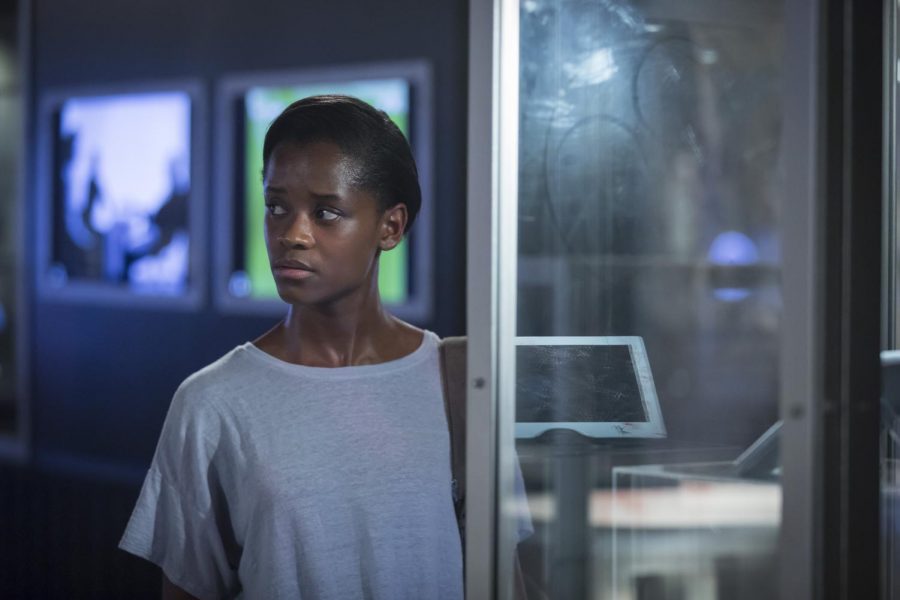Horror and the lack of black representation in films
Production still from the Black Mirror episode, “Black Museum.”
October 29, 2018
Spooky season would be nothing without a jump-scare or two. Therefore, with some inspiration from a close friend, I’ve decided to attempt to watch a horror, psychological thriller or a sci-fi film everyday in honor of Halloween.
As a black woman and multifaceted nerd, I’ve been confronted with the notion that because of my blackness and womanhood, an affinity for anything regarding cartoons, science fiction, video games and other fandoms is a rare, almost non existent occurrence, kind of like casting a non-white character in a movie that isn’t Will Smith.
Although the former is false, the latter is rooted in truth. One study showed that eight out of 100 of the highest grossing films in the U.S. had a non-white protagonist as of 2014, and six of those eight roles were fulfilled by the Fresh Prince himself.
Significant strides in representation in horror and sci-fi have been made since then due to the influx of independent cinema and diverse casting. However, like other genres, horror and sci-fi films still remain an overwhelmingly Caucasian affair.
When it comes to sci-fi, a genre that imagines a future, present, or past, of infinite possibilities, mainstream creators seem to have a difficult time imagining a world with autonomous black people.
The antidote to this exclusion is the rapidly flourishing concept of Afrofuturism. Coined by American author, lecturer and culture critic Mark Dery in 1993, Afrofuturism is “speculative fiction that addresses and engages African American concerns, imagination and experiences in the context of the 20th century technoculture.”
Within the world of sci-fi literature, authors like Octavia Butler reigns supreme. W.E.B Dubois’ The Comet, which is a post-apocalyptic story of a black man and a white woman being the last humans on Earth, was one of the first narratives to center a black character.
Pauline Hopkins penned One of Blood in 1902 about a hidden civilization in Ethiopia with advanced technology. Wa-kinda familiar, no?
The cultural avalanche Black Panther movie unleashed earlier this year not only propelled Afrofuturist thought forward, but proved with its impressive box office numbers that black creativity, beauty, characters and culture is desirable, engaging and necessary.
On the horror/thriller side of entertainment, Netflix’s Black Mirror episode “Black Museum” is a satisfying revenge narrative with a black lead that explores many themes including enslavement in the prison industrial complex. A new HBO series, Random Acts of Flyness explores black millennial life through a techno-social lens.
Jordan Peele had a major moment with the 2017 release of Get Out, a delightfully twisted social thriller about racial injustice that outsold franchise films like Paranormal Activity, The Purge and Insidious. Peele’s in line to remake Bernard Roses’ 1992 slasher film Candyman, which details the murderous spree of a mythical black man who was brutally lynched, covered in honey and then set on fire for falling in love with a wealthy white man’s daughter.
Although potent, powerful and necessary, black horror, sci-fi and thriller films can be more than just white violence, racial injustice and anti-blackness. Black people like myself are interested in thrills that don’t mimic the true horrors of our reality.
We need more black sci-fi and horror characters that portray evil scientist, vampires, shapeshifters and good guys. Black thrills and chills matter.







